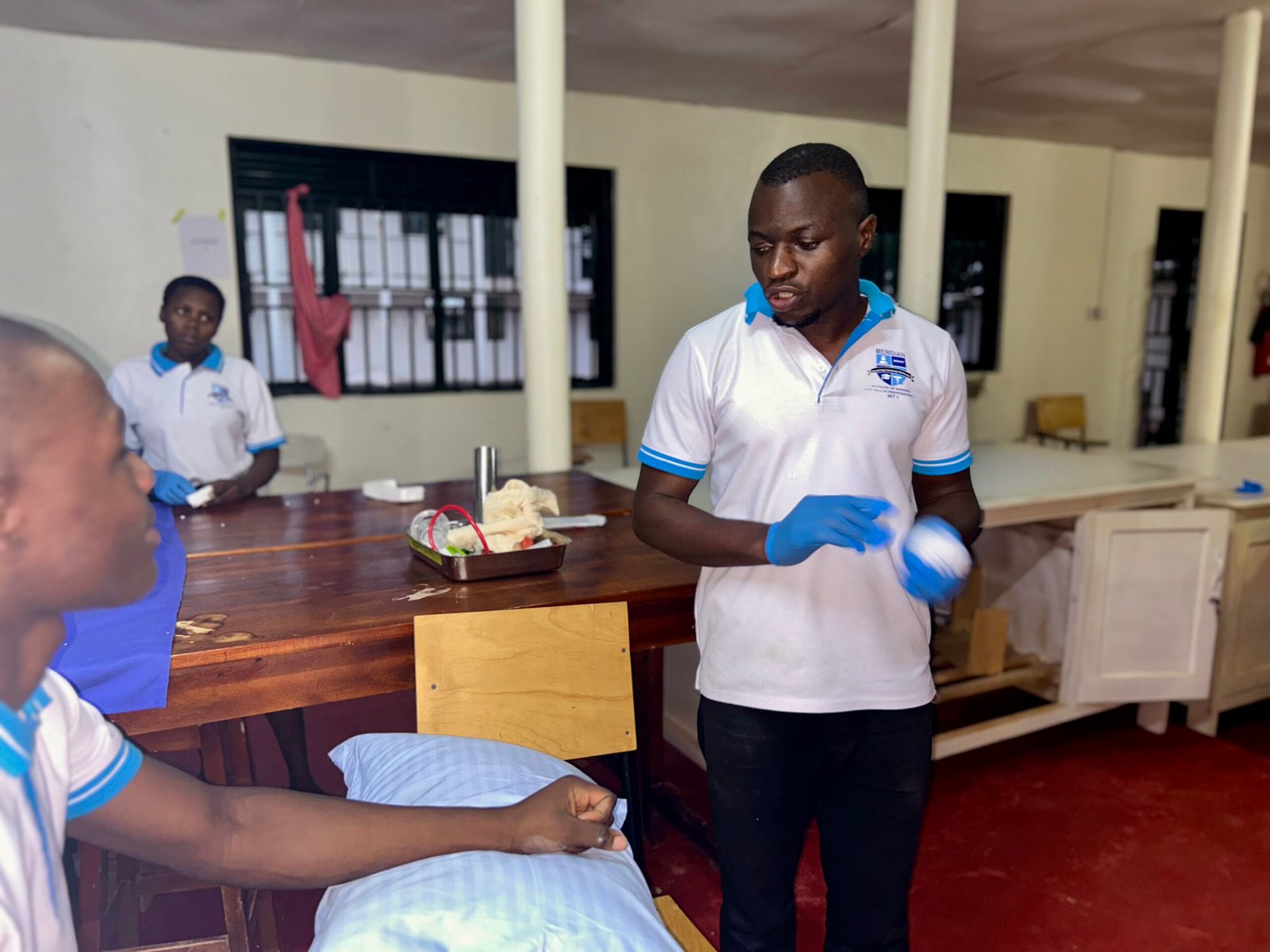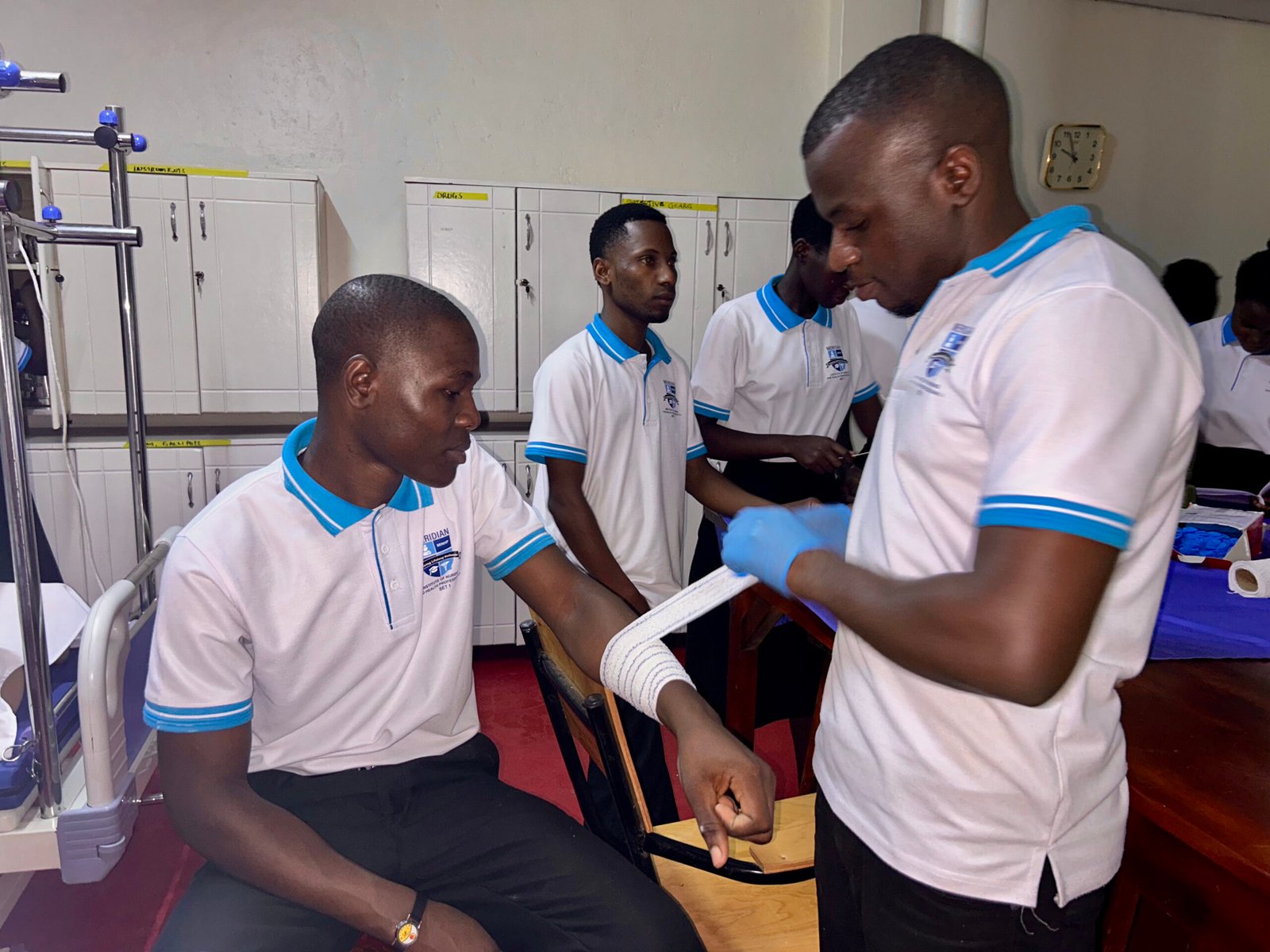Clinical Skills Laboratory
Bridging Theory and Practice with Hands-On Training


Lab Overview
The Clinical Skills Lab is designed to simulate real healthcare scenarios, giving students the opportunity to practice various medical and patient care skills. Here, students in both nursing and midwifery programs can engage in hands-on training exercises, from basic assessments to advanced procedures, all under the guidance of experienced faculty. The lab bridges the gap between classroom learning and clinical experience, ensuring that students are prepared for the challenges of professional healthcare roles.
Key Features
Simulation Mannequins and Models
Our lab includes high-fidelity simulation mannequins that can mimic human responses, such as vital signs and reactions to medical interventions. These mannequins allow students to practice patient care procedures in a controlled, realistic environment.Medical Equipment and Tools
The lab is stocked with essential healthcare equipment, including IV setups, wound care kits, monitoring devices, and other tools used in hospitals and clinics. This exposure familiarizes students with the equipment they’ll encounter in real-world settings.Learning Stations for Group and Individual Practice
Multiple learning stations provide flexible spaces where students can work individually or in small groups. These stations encourage collaborative learning and allow students to practice a range of skills, from injections and dressing changes to patient assessments.Supervised Training with Immediate Feedback
Faculty members are present during lab sessions to guide students through procedures, answer questions, and provide immediate feedback. This supportive environment enables students to refine their techniques and develop confidence in their abilities.Emergency Scenario Simulations
The lab includes simulation exercises for emergency scenarios, such as CPR, hemorrhage control, and trauma response. These exercises train students to remain calm, think critically, and respond effectively under pressure.
Skills Developed in the Clinical Skills Lab
Patient Assessment and Vital Signs Monitoring
Students learn to conduct thorough assessments, including checking blood pressure, pulse, respiration, and temperature, developing accuracy and attentiveness.Medication Administration
Practicing safe and effective medication administration, including injections and IV setup, helps students build precision and confidence in administering treatments.Wound Care and Infection Control
Training in wound care techniques and infection prevention measures ensures that students can deliver safe, sterile, and compassionate care to patients.Emergency Response Skills
Simulation exercises for emergencies, such as CPR and trauma care, prepare students to respond confidently and effectively to critical situations.
Why Our Clinical Skills Lab Stands Out
Realistic Training Environment
The lab closely resembles real healthcare settings, giving students a sense of familiarity and readiness when they transition to clinical placements and professional practice.Guidance from Experienced Faculty
Our instructors are skilled healthcare professionals who provide personalized guidance, helping students develop competence in a supportive setting.Emphasis on Patient-Centered Care
The Clinical Skills Lab emphasizes empathy and respect for patients, teaching students to provide compassionate, patient-centered care in all aspects of their training.Hands-On Learning for All Levels
The lab accommodates students at various stages of their programs, allowing beginners to learn basic skills and advanced students to refine complex techniques.

